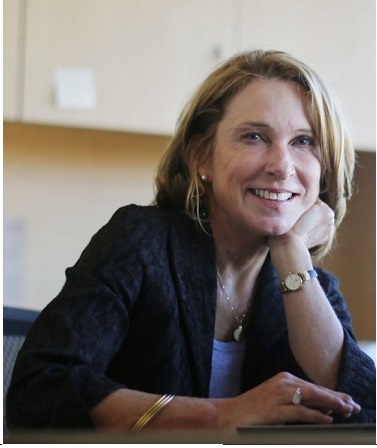SPSP President's Report
Wendy Wood
University of Southern California

Greetings from SPSP. I appreciate being asked, as incoming President of SPSP, to speak to the personality-oriented folks in our field. Historically, the President of SPSP has supported all aspects of our field. As a diverse group of scholars, we use a variety of methods and perspectives to study social behavior, and this diversity is captured in the tripartite division in our leading empirical journal-personality and individual differences, attitudes and social cognition, and groups and close relationships. I intend to honor this tradition.
In my view, SPSP is ready to enter its second generation. We are ready to launch SPSP Version 2. The first generation of this organization was more wildly successful than any of us ever imagined, thanks to the efforts of so many generous, skilled past leaders.
Our first generation efforts were focused on establishing the organization, finding sustainable funding, and setting up an effective organizational structure. These important goals took up most of the past 40 years (yes, SPSP was established in 1974!).
I was a member of SESP during the 1990s, and I remember wondering back then why we needed SPSP as well. But I came to realize that SESP is designed for established researchers in the field. SPSP is a more inclusive organization. In part because of this inclusivity, SPSP became the primary voice for our science. Back when I was on the SESP membership committee, we considered admitting a distinguished sociologist who studied groups. I was startled by a committee member's comment that sociologists were ineligible because they didn't do experiments. I knew this as false, and in any case, the "experimental" label doesn't make sense when used in this prescriptive way. Another insight came when I organized a symposium for SESP in 1995 that included a senior graduate student. The complaints from the audience were startling. They only wanted to hear members speak. Clearly there was a need for a broadly based forum for our science in addition to SESP-which has continued on to be highly successful at achieving its own mission.
SPSP became that forum. We now have a funding and a management structure. We are setting up endowments to ensure the continuation of important initiatives (e.g., the SISSP graduate training workshop). We have an amazing executive office with 5 staff led by our Executive Director, Chad Rummel. This frees us up to think more creatively about what the organization can accomplish-how we can best support our science.
To launch SPSP V. 2, we are highlighting the role of SPSP in social policy. The field is generally going to become more involved in policy initiatives, given President Obama's Sept 15, 2015 Executive Order to use behavioral insights to design government policies. An excerpt from that Order:
"A growing body of evidence demonstrates that behavioral science insights -- research findings from fields such as behavioral economics and psychology about how people make decisions and act on them -- can be used to design government policies to better serve the American people... the Federal Government should design its policies and programs to reflect our best understanding of how people engage with, participate in, use, and respond to those policies and programs." https://www.whitehouse.gov/the-press-office/2015/09/15/executive-order-using-behavioral-science-insights-better-serve-american
This Executive Order is a wonderful recognition of the power of our science. It has tremendous implications, not the least being expanded employment opportunities for our students. However, this translational initiative should not drive our science. To begin the discussion of how we can best engage with policy, I am convening a presidential symposium at SPSP with some of the top policy-oriented behavioral scientists in the nation. The symposium is scheduled for the first night of the conference, and I hope that you will be there.
Another way that we are launching SPSP V.2 is to reimagine the SPSP conference. We have formed a reimagining task force led by Jenni Beer that includes a diverse set of faculty and students. We need this reimagining. I often hear from conference attendees that the preconference was the highlight of their experience, and that what I think of as the main event-the actual conference, was a letdown in comparison. So, the task force will identify ways to modify our main conference so that it provides as engaging an experience as the preconferences.
Finally, SPSP is going to take a more active role in who is trained to become part of our science. At present, our field is surprisingly low in ethnic diversity. Stacey Sinclair, Shelly Gable, and myself have created an undergraduate summer program for ethnic minority students to be trained in top labs in our field. With this experience, we hope to increase their excitement about the science and provide them with the background to successfully enter and complete graduate school.
A presidential term at SPSP is too short to make major changes-which is good because it limits the impact any one of us can have on our diverse field. However, I am hoping during my term to identify some ways that SPSP can take a more active role in promoting and representing you and our science. We are in for an exciting next few years.